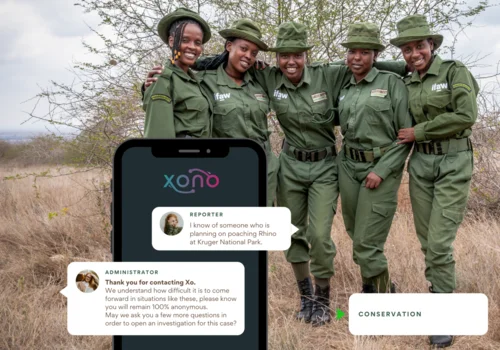What are some whistleblowing laws that protect animals
The Lacey Act forbids the selling of fish, wildlife, vegetation, and plant
items that
have been illegally collected. Importation of species protected by international or
local law is governed by this statute, which was adopted for the first time in 1900. The
law also prohibits the spread of invasive or non-native plants. “To anyone
who provides
information that leads in an arrest, a criminal conviction, a civil penalty assessment,
or property confiscation for any offense” of the law since 1983. The government
determines who receives an individual prize.
The 1998 Rhinoceros and Tiger Conservation Act establishes
restrictions on
the import and export of substances derived from rhinoceros and/or tiger species.
Due to the fact that the global rhino population has plummeted by 90% since
1970 and only 5,000-6,000 tigers remain, the legislation was enacted in response to
congressional findings that the wild populations of all five tiger subspecies are
currently threatened. Individuals who volunteer information that results in the arrest
of career criminals may be compensated financially.
The Wild Bird Conservation Act of 1992 was enacted in 1992 with the
purpose
of protecting exotic bird species and assisting in wild bird conservation initiatives.
The law imposes import limitations on exotic bird species to guarantee that
international trade does not affect the species' populations and that trading in such
species is both environmentally sustainable and beneficial to the species. Exotic bird
species that do not adhere to the strict criteria and principles of the legislation are
not permitted to enter the country. Individuals who volunteer information that results
in the arrest of criminals may be compensated financially.
Antarctica's indigenous animals, birds, plants, and ecosystems were
protected through the 1978 Antarctic Conservation Act. Without a permission, the
import
or export of certain Antarctic products into the United States, as well as access to
Antarctic Specially Protected Areas (ASPAs) and the release of designated garbage, are
now forbidden. Individuals who volunteer information that result in the arrest of
criminals may be compensated financially.
The Fish and Wildlife Improvement Act of 1978, which was enacted into
law in
1978, enabled efforts to improve fish and wildlife law enforcement. In 1982,
whistleblower awards were introduced for anyone who revealed infractions of laws being
broken related to fish, wildlife opr plant. As a result of this broad provision,
wildlife whistleblowers can now receive financial compensation under more than 40
wildlife protection laws, including the African Elephant Conservation
Act, the Airborne
Hunting Act, the Bald and Golden Eagle Protection Act, the Marine
Mammal Protection Act,
the Migratory Bird Acts and the Florida Keys National Marine Sanctuary.
